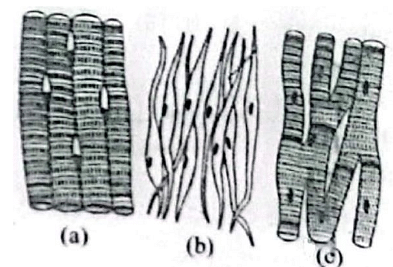Question:
Which of the following is not a part of the human digestive system?
Which of the following is not a part of the human digestive system?
Show Hint
*Remember:* The digestive system includes organs that help process food, while the lungs are part of the respiratory system.
Updated On: Jan 16, 2026
- Stomach
- Pancreas
- Liver
- Lungs
Hide Solution
Verified By Collegedunia
The Correct Option is D
Solution and Explanation
To solve the problem, let's understand the human digestive system and the roles of the organs listed, so we can identify which one is not involved in digestion.
1. What is the Digestive System?
The digestive system helps our body to break down the food we eat into smaller parts so that the body can absorb nutrients and energy. It also helps get rid of waste.
2. Important Organs in the Digestive System:
- Stomach: This is a muscular bag where food is mixed with digestive juices and broken down into a semi-liquid form. It is a key organ in digestion.
- Pancreas: This organ produces important digestive enzymes that help break down proteins, fats, and carbohydrates. It also makes hormones like insulin that regulate blood sugar.
- Liver: The liver produces bile, a substance that helps digest fats. It also processes nutrients absorbed from the small intestine and removes toxins.
3. What About the Lungs?
- The lungs are part of the respiratory system, not the digestive system.
- Their main job is to help you breathe by taking in oxygen and removing carbon dioxide from your blood.
- The lungs do not help in breaking down food or absorbing nutrients.
4. Summary:
- The stomach, pancreas, and liver all play important roles in digestion.
- The lungs are essential for breathing but are not involved in digesting food.
Final Answer:
The organ that is not part of the human digestive system is the lungs.
Was this answer helpful?
1
0
Top Questions on Human body
- The part of the brain responsible for maintaining posture and balance is the:
- CUET (UG) - 2025
- Biology
- Human body
- Which part of the nephron is primarily responsible for filtration of blood?
- CUET (UG) - 2025
- Biology
- Human body
- The large bean-shaped organ acting as a filter of the blood in humans is:
- Given below are two statements:
Statement I: The cerebral hemispheres are connected by nerve tract known as corpus callosum.
Statement II: The brain stem consists of the medulla oblongata, pons and cerebrum.
In the light of the above statements, choose the most appropriate answer from the options given below:- NEET (UG) - 2024
- Biology
- Human body
- Three types of muscles are given as a, b and c. Identify the correct matching pair along with their location in human body :

- NEET (UG) - 2024
- Biology
- Human body
View More Questions
Questions Asked in CUET exam
- Find the ratio of de-Broglie wavelengths of deuteron having energy E and \(\alpha\)-particle having energy 2E :
- CUET (UG) - 2026
- Dual nature of radiation and matter
- Match List-I with List-II \[ \begin{array}{|l|l|} \hline \textbf{Solutions} & \textbf{Explanation} \\ \hline (A) \; \text{Saturated solution} & (I) \; \text{Solution having two components.} \\ \hline (B) \; \text{Isotonic solutions} & (II) \; \text{A solution whose osmotic pressure is more than that of another.} \\ \hline (C) \; \text{Binary solution} & (III) \; \text{A solution which contains the maximum amount of solute that can be dissolved in a given amount of solvent at a given temperature.} \\ \hline (D) \; \text{Hypertonic solution} & (IV) \; \text{The solutions having the same osmotic pressure at a given temperature.} \\ \hline \end{array} \]
- CUET (UG) - 2025
- General Chemistry
- The de-Broglie wavelength associated with a ball of mass 150 g traveling at 30.0 m/s would be
- CUET (UG) - 2025
- de broglie hypothesis
- A clock shows the time as 3:15. What is the angle between the hour and minute hands?
- CUET (UG) - 2025
- Clock and Calendar
- If 36: 84 :: 42: X, then the value of X, is:
- CUET (UG) - 2025
- Ratio and Proportion
View More Questions